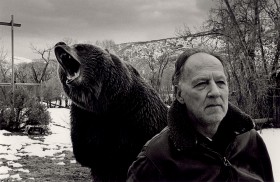


Álex de la Iglesia: Messi
Svetlana and Zoran Popovic, directors of the Magnificent7 Festival in Belgrade present ”Messi” that will be screened February 1st at the festival. The text also includes words from the director:
When one of the most important Spanish directors, Alex de la Iglesia was asked to make a documentary about world famous footballer Lionel Messi, he decided not to make the film about the sport but to look for the mistery behind it, for what he calls the “rosebud” moment. De la Iglesia was fascinated by the way that Messi polarises opinion in spite of his astonishing ability. “Half of the world loves Messi. The other half hates Messi. There is not something in the middle.” If he searched hard enough, De la Iglesia was certain, he could discover just why Messi had pushed himself to become one of the greatest footballers of his age. When he was making the film De la Iglesia was thinking all the time about the legendary Orson Welles’ “Citizen Kane”, about the boy with the sledge who grows up to become the all-powerful media magnate.
Thus he created extremely dynamic and fascinating docufiction puzzle consisting of the dinner scene with some of the iconic football figures and Messi’s closest friends and people from his youth and childhood, archive materials and specially directed fiction scenes based on true events. The idea of the dinner came to him from Woody Allen’s film “Broadway Danny Rose” in which a group of old-time comedians reminisce about a person called Danny Rose – and he comes alive in their anecdotes.
The film was premiered at the Venice Festival as one of the best made documentaries in the past year – charismatic participants, excellent directing, camera and sound. Masterly edited!
Director’s Word: What I’ve done is made a film that shows a story, but I also wanted to make a film that explains why Messi is the way he is. Why is he so shy? So reserved? What happened to him in childhood to make him that way? He is one of the most celebrated people in world, along with Cristiano Ronaldo, with some of the greatest opportunities to open himself up to the world. And yet he shuts himself off in his town with his family. This is a film in which we wanted to mark the life and biography of a personality. It’s made for people to enjoy, along with Messi, and for people who care about him as a personality.
Spain, 2014, 97 mins.
